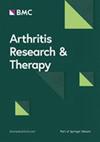Low-dose rituximab in lupus enteritis: a comparative study on its efficacy in modulating mucosal immunity and reducing inflammation
IF 4.6
2区 医学
Q1 Medicine
引用次数: 0
Abstract
Lupus enteritis (LE) is a serious manifestation of systemic lupus erythematosus (SLE), yet optimal treatment strategies remain unclear. This study aimed to compare the efficacy of rituximab (RTX) plus glucocorticoids versus glucocorticoids combined with conventional immunosuppressants in patients with moderate-to-severe LE. We retrospectively analyzed 36 patients with SLE-related intestinal involvement treated at our center between January 2015 and August 2024; sixteen received RTX plus glucocorticoids, and twenty received glucocorticoids with conventional immunosuppressants. Baseline characteristics, clinical features, abdominal CT findings, laboratory parameters (including serum and fecal IgA, IL-6, TNF-α, and IL-10), and disease activity scores (SLEDAI-2 K and BILAG-2004) were assessed. For fecal IgA analysis, age- and sex-matched healthy controls without relevant diseases or recent antibiotic/microbiota-modulating use were included. Treatment response and safety outcomes were compared over 6 months. Both patient groups exhibited comparable baseline characteristics. Both treatment strategies led to significant improvements in clinical symptoms and imaging abnormalities—including bowel wall thickening, mesenteric effusion, comb sign, or target sign—with no significant differences observed between the groups. After six months of treatment, the median SLEDAI-2 K score in the rituximab (RTX) group decreased from 15 to 0 (p < 0.001), and the BILAG-2004 score decreased from 31.5 to 0 (p < 0.001). IL-6 levels in the RTX group also significantly declined from 26.57 ± 7.94 pg/mL to 4.15 ± 2.10 pg/mL (p < 0.01), with a greater reduction compared to the control group. Fecal IgA levels were higher in lupus enteritis patients than in healthy controls and decreased in both groups following treatment. Baseline IL-6 correlated with SLEDAI-2 K and BILAG-2004 scores, whereas fecal IgA was elevated in patients with mesenteric effusion but not associated with overall disease activity. At 6 months, remission was achieved in 93.8% of RTX-treated patients and 85% of controls (p = 0.418), with comparable safety profiles. Both RTX plus glucocorticoids and conventional immunosuppressants plus glucocorticoids are effective in inducing clinical and radiologic remission in LE. RTX may lead to faster improvement in certain serologic and inflammatory biomarkers. Larger studies with longer follow-up and stratification by systemic involvement are warranted to optimize individualized treatment strategies.小剂量利妥昔单抗治疗狼疮性肠炎:调节粘膜免疫和减轻炎症的比较研究
狼疮肠炎(LE)是系统性红斑狼疮(SLE)的严重表现,但最佳治疗策略尚不清楚。本研究旨在比较利妥昔单抗(RTX)联合糖皮质激素与糖皮质激素联合常规免疫抑制剂治疗中重度LE患者的疗效。我们回顾性分析了2015年1月至2024年8月在我中心治疗的36例sle相关肠道受累患者;16例接受RTX加糖皮质激素治疗,20例接受糖皮质激素加常规免疫抑制剂治疗。评估基线特征、临床特征、腹部CT表现、实验室参数(包括血清和粪便IgA、IL-6、TNF-α和IL-10)和疾病活动性评分(SLEDAI-2 K和BILAG-2004)。粪便IgA分析纳入了年龄和性别匹配的健康对照,无相关疾病或近期使用抗生素/微生物群调节剂。在6个月内比较了治疗反应和安全性结果。两组患者均表现出相似的基线特征。两种治疗策略均显著改善了临床症状和影像学异常,包括肠壁增厚、肠系膜积液、梳状征或靶征,两组间无显著差异。治疗6个月后,利妥昔单抗(RTX)组的SLEDAI-2 K中位评分从15降至0 (p < 0.001), BILAG-2004评分从31.5降至0 (p < 0.001)。RTX组IL-6水平也从26.57±7.94 pg/mL显著下降至4.15±2.10 pg/mL (p < 0.01),与对照组相比下降幅度更大。狼疮肠炎患者的粪便IgA水平高于健康对照组,治疗后两组均有所下降。基线IL-6与SLEDAI-2 K和BILAG-2004评分相关,而肠系膜积液患者的粪便IgA升高,但与总体疾病活动无关。在6个月时,93.8%的rtx治疗患者和85%的对照患者达到缓解(p = 0.418),具有相当的安全性。RTX加糖皮质激素和常规免疫抑制剂加糖皮质激素在诱导LE临床和放射学缓解方面都有效。RTX可能导致某些血清学和炎症生物标志物的更快改善。为了优化个体化治疗策略,有必要进行更大规模、更长的随访和系统性分层研究。
本文章由计算机程序翻译,如有差异,请以英文原文为准。
求助全文
约1分钟内获得全文
求助全文
来源期刊

Arthritis Research & Therapy
RHEUMATOLOGY-
CiteScore
8.60
自引率
2.00%
发文量
261
审稿时长
14 weeks
期刊介绍:
Established in 1999, Arthritis Research and Therapy is an international, open access, peer-reviewed journal, publishing original articles in the area of musculoskeletal research and therapy as well as, reviews, commentaries and reports. A major focus of the journal is on the immunologic processes leading to inflammation, damage and repair as they relate to autoimmune rheumatic and musculoskeletal conditions, and which inform the translation of this knowledge into advances in clinical care. Original basic, translational and clinical research is considered for publication along with results of early and late phase therapeutic trials, especially as they pertain to the underpinning science that informs clinical observations in interventional studies.
 求助内容:
求助内容: 应助结果提醒方式:
应助结果提醒方式:


